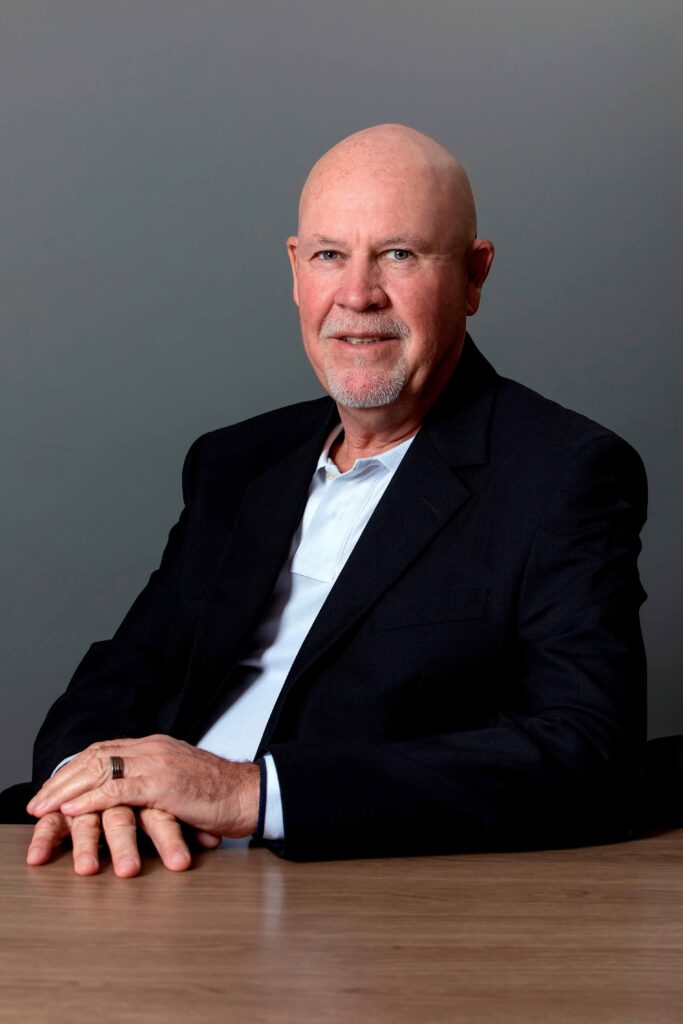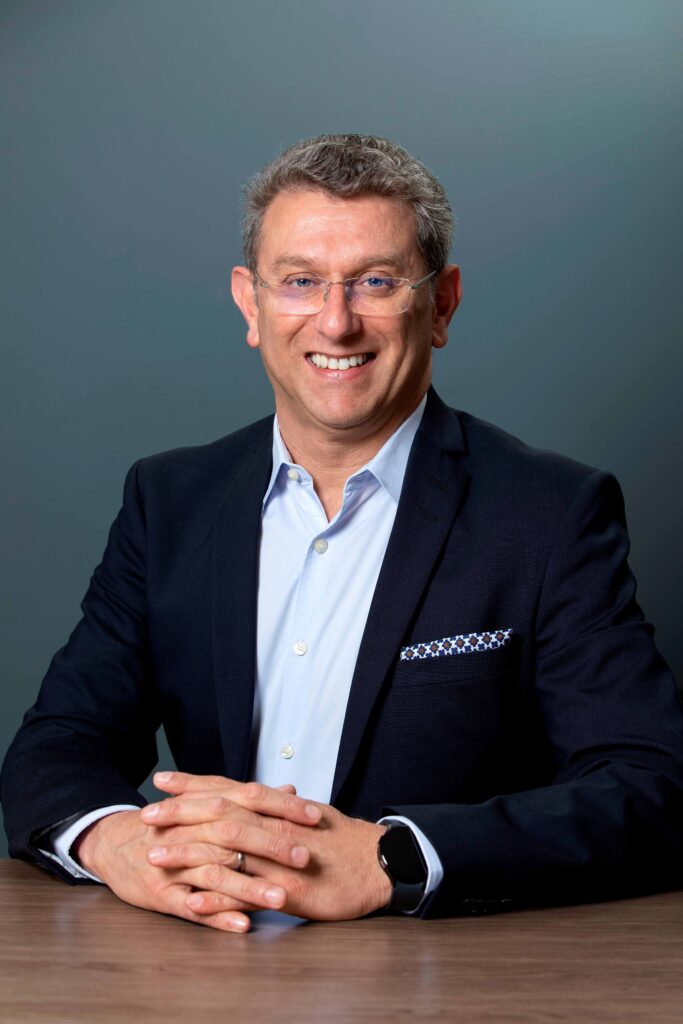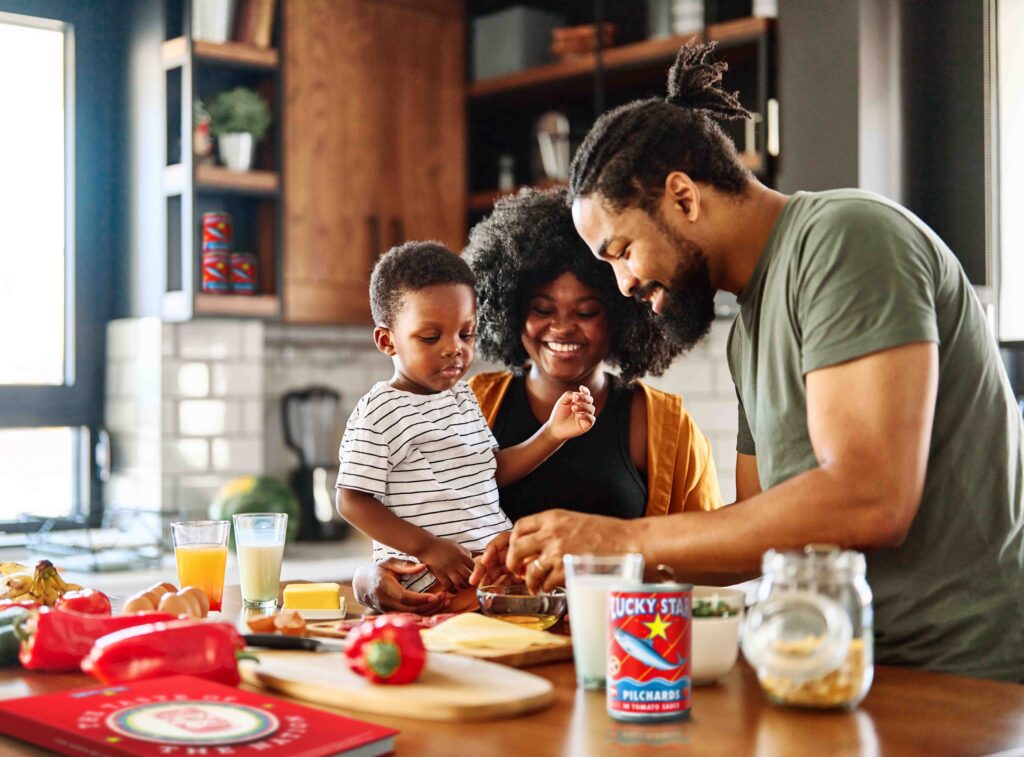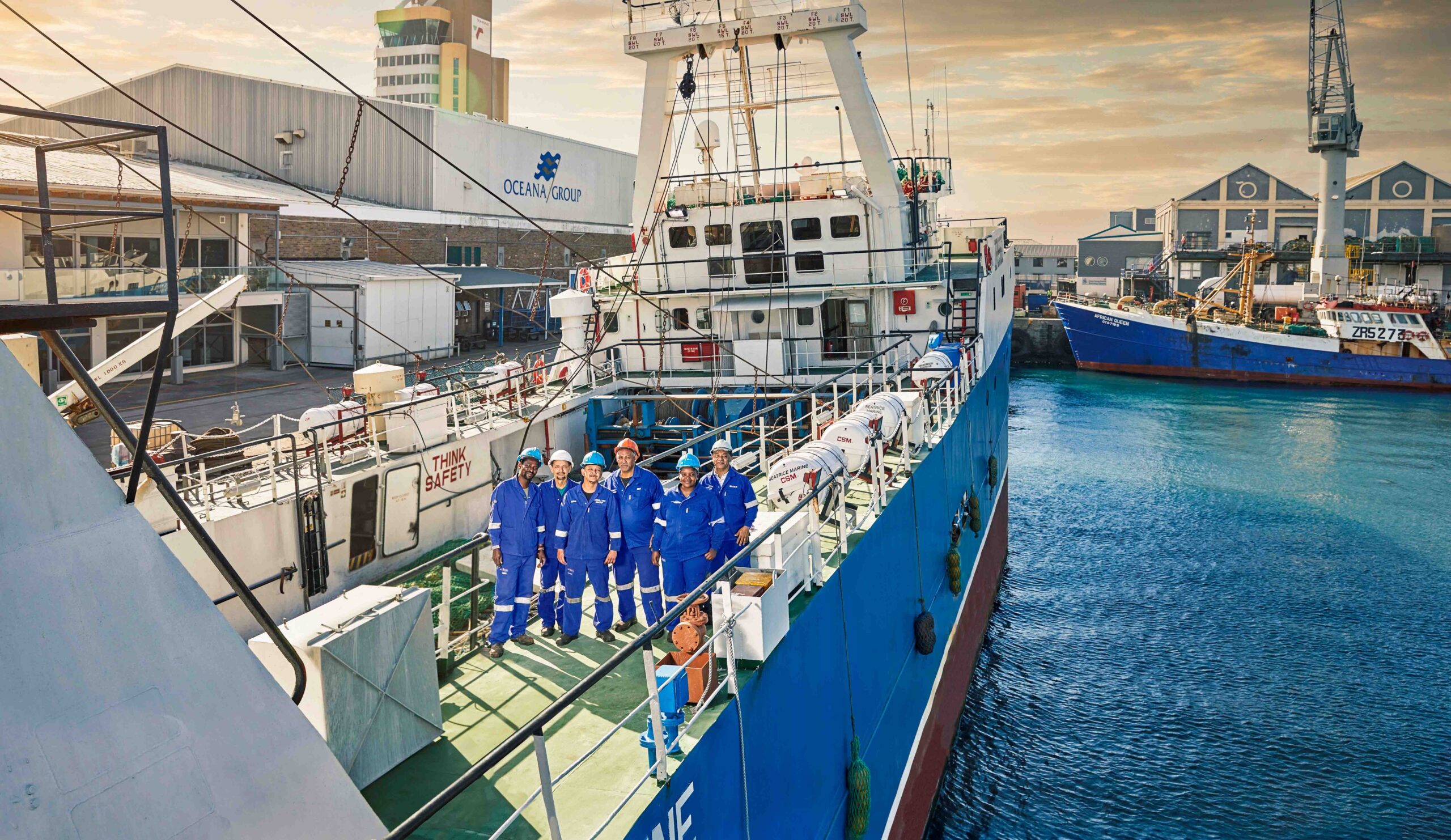Leadership magazine sat down with the Oceana Group’s Chief Executive Officer (CEO), Neville Brink, and Chief Financial Officer (CFO), Zaf Mahomed, to garner some insight into what it means to be Africa’s largest fishing and food processing company—and how they intend to keep that title
The Oceana Group is Africa’s largest fishing and food processing company operating on a global scale, with a history dating back over 100 years.
Equipped with an experienced management team, nearly 4 000 employees based across South Africa, Namibia, and the United States, 46 vessels and eight production facilities across two continents—selling their products to customers in 36 countries, the Oceana Group has become more than just a business, it is an institution.
The Oceana Group operates across the fishing value-chain, which includes sourcing, processing, distributing, marketing and selling. It is a diversified business in terms of the species they harvest, the geographies and currencies in which they operate, and the products they sell.
With the iconic Lucky Star Brand within its net, as well as established operations within the areas of Fishmeal & Fish Oil (USA and South Africa) and Wild Caught Seafood (Hake, Horse Mackerel, Kingklip, Monk, Squid and Lobster), there is no slowing down Oceana, especially with its three strategic imperatives: to benefit from diversification, deliver organic growth, and create sustainable earnings.
The success of the iconic Lucky Star brand
Lucky Star has been a much-loved household name in the SADC region for the past 70 years. With over 800 000 cans of Lucky Star enjoyed every day, serving over three million people daily, it’s no wonder this brand has become so ubiquitous.
This year the Ask Africa Icon Brands 2023/24 survey confirmed this, naming it the country’s most iconic brand. This is the second accolade that Lucky Star has won in recent years. In 2022/23 it was named the top-performing township brand in the Kasi Brands benchmarking survey.
In a statement, Ask Africa said: ”The top three achievers of Icon Brand Status all have an exceptional understanding of consumers, innovative spirit, and strong emotional connections. These brands have high levels of trust, quality and consistency and deliver products that resonate with lifestyles, bring smiles to faces and contribute positively to communities.
“Lucky Star’s major differentiator in claiming top position is the successful conversion from awareness to being in the basket of the consumer.”
Canned pilchards are a healthy and affordable protein that provide daily food security to millions of South Africans. Relative affordability compared to other proteins, ease of preparation (hot or cold), and its availability at almost every food store in the country makes it number one. The fact that it’s shelf-stable, which means it does not spoil when there’s loadshedding, has helped to recently enhance its popularity.
“It’s why we do our utmost to keep prices affordable, both by absorbing some input costs and running promotions with our retail partners,” Oceana Group CEO Neville Brink says.
To find out more about what goes on behind the scenes from strategic, sustainability, and financial standpoints, Leadership sat down with the Oceana Group’s CEO, Neville Brink, and CFO, Zaf Mahomed, for a chat.
Neville Brink: A CEO who cares

After almost 35 years in the fishing industry, Neville Brink was considering doing something different and traveling the world.
As fate would have it, in early 2022, the Oceana Board asked him to take on the role of CEO.
“It was an offer I simply could not refuse as the company needed stability and someone to guide employees into the future. I stayed because I believe in this business, its people, and its resilience to last another 100 years,” Brink, who was appointed managing director of Oceana Lobster and Calamari Fishing in 2005 and assumed the position of managing director of Blue Continent Products from 1 February 2011, says.
“I made a commitment to everyone at Oceana that, with their help, we’d continue to drive performance delivering value to all stakeholders. The 2023 financial results were a vindication that this wasn’t just talk. We unequivocally proved that we were doing what we said we would.
“Leading a culture that brings our values of courage, teamwork, respect, accountability, and trust into every part of our business has been a major highlight for me in these two years.”
Sustainable fishing practices
As an imperative, South Africa’s offshore marine resource biomass is well managed, with the majority of stocks sitting at a consistently stable level for the past 50 years. As an example, the anchovy population has been well above what it was in the late 1990s for over 20 years. While this is incredibly important for the future of fishing and production, there are other elements at play which require close attention.
Brink explains: “While we are happy with the current levels, that’s not to say that climate change isn’t altering marine dynamics and that we shouldn’t be concerned, but its impact isn’t universally negative. Some fish populations will benefit, while others will not.
“Of course, we’re certainly not suggesting that the authorities relax their vigilance or that the industry shouldn’t be doing everything reasonably possible to ensure the sustainability of maritime resources. The future of our business depends on it.
“In this regard, one of the concerns is bycatch, when species other than those being targeted are caught. Several initiatives are being implemented to mitigate this problem. These include exclusion devices that enable predators chasing target species to escape trawl nets. Tori lines are another. These are streamers attached to lines or trawl cables which scare away predating seabirds to prevent them being injured.”
As a way to ensure that the Oceana Group is playing their part in terms of bycatch, two permanent scientific observers from the Department of Forestry, Fisheries, and the Environment (DFFE) are permanently based on the Desert Diamond. As well as recording the size and age of the fish caught, they can instruct the vessel to move to another area if there is too much bycatch.
In addition, the industry self-regulates. Oceana is one of the founding members of the Responsible Fisheries Alliance and has one of the highest participation rates in the Responsible Fisheries Alliance training that the WWF conducts. Some 60% of seagoing personnel have undergone the training.
“We observe the South African Sustainable Seafood Initiative’s assessments on seafood for target species. This ‘traffic-light’ rating methodology is credible and overseen by WWF South Africa,” Brink, who previously held the position of marketing director of the Oceana Fishing Division, states.
“Oceana also invests in certification programs for the products it harvests and sources, including the Marine Stewardship Council standard—considered the best accreditation that can be achieved for wild catch. Marine Trust certifies fishmeal and fish oil. In addition, the industry works with the regulators to ensure compliance, reporting irregularities and suspicious vessels. As a result, there is very little illegal offshore fishing in South African territorial waters.”
The real crisis is inshore, where poachers target high-value, relatively easy-to-catch species such as abalone and West Coast rock lobster. Abalone has been virtually wiped out and the West Coast rock lobster is following a similar trajectory.
Doug Butterworth, Emeritus Professor with the Department of Mathematics and Applied Mathematics at the University of Cape Town and an internationally respected fisheries’ scientist, says South Africa’s primary focus regarding marine protected areas should be “space-time closures to reduce the illegal fishing that is wiping out our major inshore resources.”
“In terms of the future of the sector in South Africa, we’re often asked about aquaculture. Internationally, it’s growing fast to meet increased demand for seafood and the volume of some species of farmed fish now exceeds that of wild-caught,” Brink explains.
“The reality, nevertheless, is that for high-volume, low-value species, it will be very difficult for South Africa to compete. Input costs such as labour and power are double those in the East, and a reliable electricity supply is essential. The exception is the high-value domestic abalone species.”
Where the local industry will benefit, Brink believes, is by providing Fishmeal and Oil to the global aquaculture sector. Growth in Aquaculture will see demand for Fishmeal and Oil increase, which will sustain the current good prices.
“Other than the threatened high-value inshore species, the South African fishing industry is in a relatively good place. It is generally well run, well managed, and the offshore resources are sustainably harvested and stable,” Brink concludes.
Zaf Mahomed: A CFO with an eye on the future

Appointed in 2023 as Oceana’s CFO and Executive Director of the Oceana Board, Zaf Mahomed is a Chartered Accountant (SA) and holds an MBL from the UNISA School of Business Leadership, BCom (Hons) from UNISA, and BCom from University of Natal.
Mahomed has a proven track-record across multiple industries and more than 25 years of finance and business experience across multinational and listed companies, as well as worldwide brands including telecommunications, food franchise, retail, financial services, real estate and property, food, medical devices, hospitality, mining equipment, and fast-moving consumer goods.
The story behind the numbers
Despite what is currently a difficult operating environment, Mahomed says that Oceana is in a good place.
“There is high demand for our canned products, and we will achieve better margins by limiting costs and improving efficiencies. Our diversified portfolio is naturally hedged against currency volatility and good inventory levels and continued demand should enable us to increase exports and US dollar earnings,” he says.
“Bear in mind we’re a multi-national business. In South Africa, there’s strong demand for affordable, healthy shelf-stable protein. We’ve purposely increased stock levels to meet this growing demand. In terms of production, supply of pilchards isn’t really a problem as, in addition to what we catch, we buy frozen pilchards on the international market. Globally, the aquaculture sector is growing as is demand for fish oil, which should sustain pricing for that pillar of our business.”
In order to keep the sustainability of the Group intact, future-proofing of the entity is vital.
For future-proofing to take place, three areas need to be focused on, which Mahomed highlights below:
Market volatility
“We are fortunate to have a natural business hedge as we both export and import, so are less susceptible than some other companies to currency volatility. The sale of CCS (Commercial Cold Storage), our cold-storage business, enabled us to settle South African-term debt, which was prudent given higher interest rates. This has further strengthened our balance sheet and creates opportunities to grow. We are also fortunate to have a diverse customer base in different geographic regions, which reduces risk.”
Resource availability and ability to harvest
”We proactively engage in managing fishing resources through our own initiatives and working with industry, government, and scientific working groups in the USA, SA, and Namibia. We also use our own resources to support scientific surveys and provide input to the government. The fact that we harvest diverse species and have an established network to procure frozen fish on the international market limits risk. The investment in our fleet will improve the reliability of the vessels and the time that they are able to spend at sea. It will also improve efficiency.”
Business interruption
“The silver lining from both the COVID-19 pandemic and 2021 unrest in Gauteng and KwaZulu-Natal is that it gave us experience in dealing with business interruption and testing our policies and procedures. We have work-from-home policies in place and other business continuity measures. At our factories, investment in desalination plants and solar power will help to ensure the continuity of these operations.”
A term filled with highlights
While Mahomed may have only been in his position at the Oceana Group for a short space of time, his impact on the role has produced a number of business-wide and personal highlights.
As Oceana realised the advantages of listing shares on the JSE stock exchange 75 years ago, they are currently one of the most empowered JSE-listed companies, achieving Level 1 B-BBEE status for the past six years. In 2023, under Mahomed’s guidance, Oceana listed on A2X (a stock exchange playing an integral part in the progression of the South African marketplace), presenting another opportunity to provide additional value to their shareholders.
The disposal of Commercial Cold Storage in the first half of 2023 generated profit after tax of R381 million. The sale allowed the entity to focus on its three core businesses, while also assisting in Mahomed’s mission to reduce debt.
The Group repaid R767 million term funding in line with its debt reduction plan, resulting in the lowest debt levels since it acquired Daybrook in 2015. They also repaid an additional $15m in US debt last year. This has resulted in significant improvement in the Group’s net debt to earnings before interest, taxes, depreciation, and amortisation (EBITDA) ratio from 1.7 times to 1.2 times provided capacity to grow, as well as fund capex.
The Group has since increased its capital expenditure to R458 million as part of its reinvestment strategy. This included R61 million for the construction of a new canned meat facility in St Helena Bay and R91 million for improving efficiencies at its fishmeal facilities in both SA and the US. As part of the program to upgrade the hake fleet, R106 million was spent to increase the capacity of the flagship hake trawler. The Group has committed R330 million for a three-year phased investment in the West Coast canned fish and fishmeal operations to improve the processing capacity and efficiencies at the two plants.

Mahomed has also enabled a R600 million sustainability-linked loan which will continue to enrich the ESG landscape of Oceana.
“Our purpose is to positively impact society by creating long-term sustainable value for all our stakeholders. This is fundamental to our strategy and can be enhanced through our working capital initiatives such as this partnership with Standard Bank,” Mahomed explains.
“It is an honour to lead an enthused and bright finance team, committed to delivering results. Seeing them reach new heights has been very rewarding for me and for the Group as a whole,” Mahomed says with pride. Broader than that, driving the new Oceana Group values has seen Oceana named the ‘Corporate Treasury and Funding Team of the Year’ in the Awards for Excellence category of the 2024 Bonds, Loans & ESG Capital Markets Africa Awards.”
Neville is positive about the future, “Oceana is a company that has commenced a process of substantial reinvestment in its people and assets whilst continually evaluating new strategic opportunities to add to its diversity. Oceana is looking for sustained growth and return for all stakeholders.”

